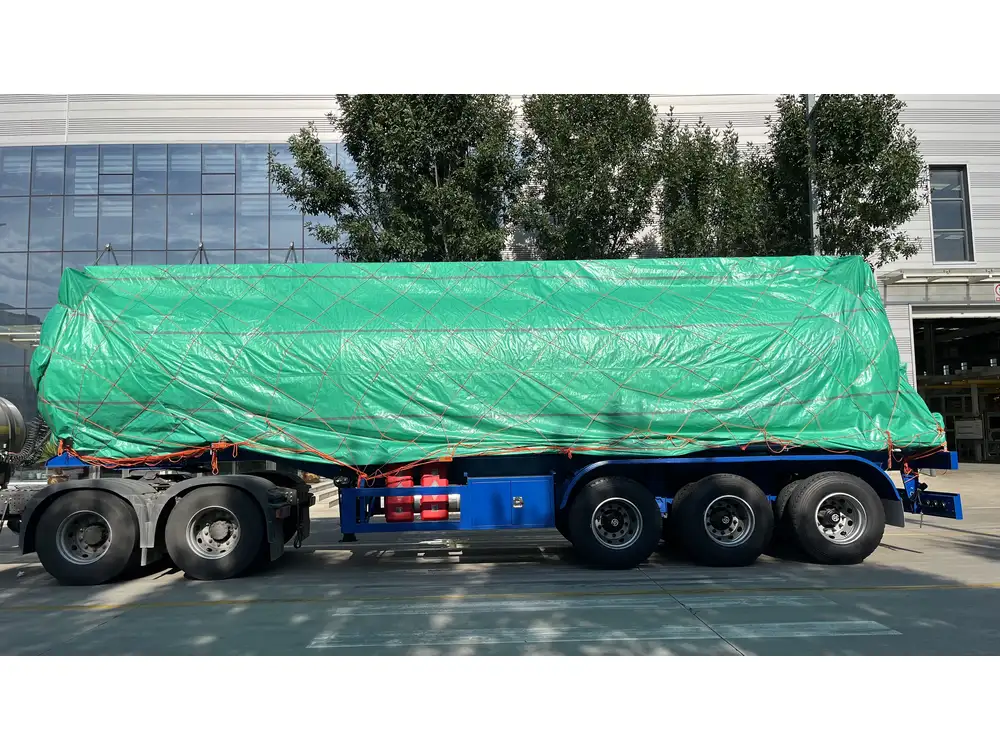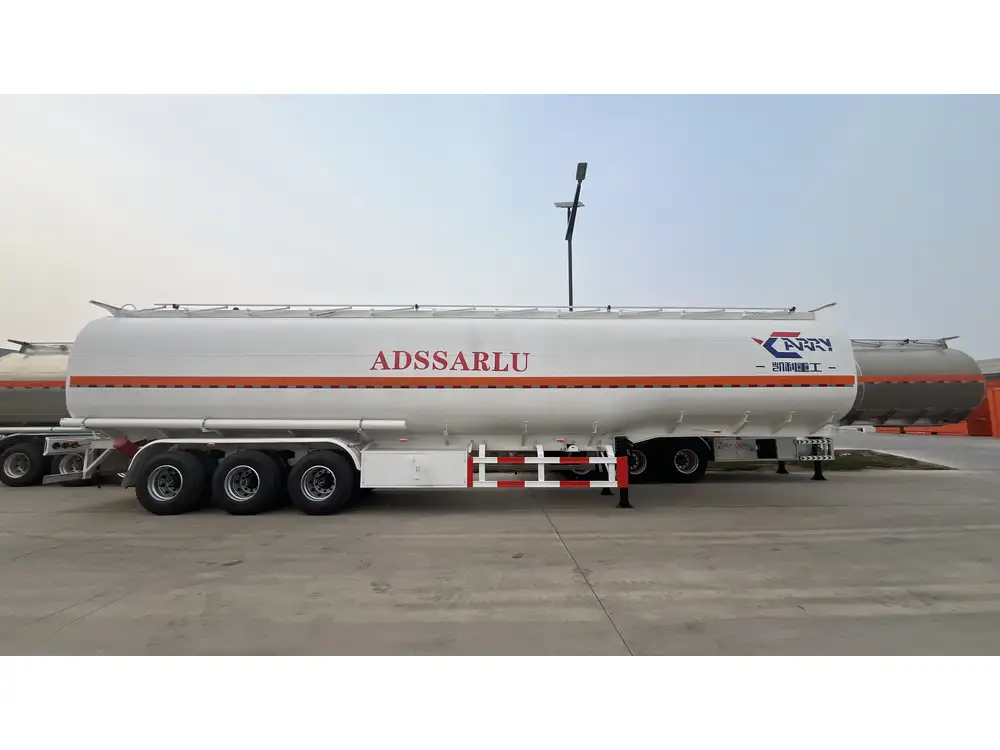Choosing the right battery for your dump trailer is a decision that can significantly impact its performance, efficiency, and reliability. After all, the functionality of a dump trailer largely hinges on the robustness of its hydraulic system, which is directly powered by the battery. This article delves into the intricacies of selecting the best battery tailored to your dump trailer needs.
Understanding the Power Needs of Your Dump Trailer
Before selecting the optimal battery, it’s imperative to assess your dump trailer’s power requirements. The following factors play a crucial role in determining the appropriate battery type:
| Factor | Description |
|---|---|
| Hydraulic System | Determine the hydraulic system’s voltage requirements—most commonly 12V or 24V. |
| Load Capacity | Assess the weight of the loads you will typically haul and the frequency of operation. |
| Cycle Durability | Identify how often you will discharge and recharge the battery. This affects battery choice. |
| Environmental Conditions | Consider exposure to elements, such as temperature extremes and moisture. |
By clearly understanding these factors, you can better align your battery choice with the operational demands of your dump trailer.
Battery Types for Dump Trailers
When it comes to batteries used in dump trailers, several options are available, each with its distinct pros and cons. The most typically employed battery types include:

1. Lead-Acid Batteries
Pros:
- Cost-Effective: Generally more affordable than other battery types.
- Availability: Easily found in auto parts stores and online.
Cons:
- Weight: Heavier than other battery types, which can affect overall payload capacity.
- Limited Cycle Life: They do not handle deep discharges well, leading to a shorter lifespan.
2. AGM (Absorbent Glass Mat) Batteries
Pros:
- Vibration Resistant: Ideal for rugged applications and environments.
- Maintenance-Free: No need for periodic water topping, making them hassle-free.
Cons:
- Higher Cost: Generally more expensive than traditional lead-acid batteries.
- Temperature Sensitivity: Performance can diminish considerably in extreme temperatures.
3. Lithium-Ion Batteries
Pros:
- Lightweight and Compact: Allows for increased payload capacity and easier handling.
- High Cycle Life: Excellent for frequent use and deep discharges, often lasting several years longer.
Cons:
- Higher Initial Investment: The cost can be significantly higher than lead-acid or AGM options.
- Compatibility Issues: Some dump trailers may not be designed to work with lithium batteries without modifications.

Comparative Analysis of Battery Types
| Battery Type | Cost | Weight | Cycle Life | Maintenance | Ideal For |
|---|---|---|---|---|---|
| Lead-Acid | Low | Heavy | Short | Regular | Casual use, budget users |
| AGM | Medium | Moderate | Moderate | None | Off-road environments |
| Lithium-Ion | High | Light | Long | None | Frequent and heavy users |
Factors Influencing Battery Selection
Selecting the best battery isn’t merely a matter of preference; it’s a scientific approach that requires careful consideration of several critical factors:
Capacity Ratings
The battery’s amp-hour (Ah) rating will dictate how long it can supply power before requiring a recharge. For dump trailers, the usual recommendation is to select a battery with at least 100Ah capacity for moderate use. For more intensive applications, consider batteries exceeding 150Ah.

Cold Cranking Amps (CCA)
If your dump trailer operates in colder climates, CCA becomes a paramount measurement. This figure represents the battery’s ability to start in low temperatures. A higher CCA rating is essential for optimal performance under frigid conditions.
Depth of Discharge (DoD)
Understanding the depth of discharge is vital for longevity. Lead-acid batteries generally recommend a DoD of no more than 50%, while lithium-ion batteries can typically handle a 100% DoD without adverse effects. This distinction directly informs the battery type you choose.
Charging Systems
Ensure your dump trailer’s battery charger is compatible with the battery type selected. Lithium and AGM batteries require different charging methods than conventional lead-acid batteries.

Battery Maintenance Tips
Proper maintenance can be the difference between a battery that lasts a season and one that endures years of service. Here are essential maintenance tips to prolong the life of your dump trailer’s battery:
1. Regular Inspections
Conduct routine checks on battery terminals for corrosion or loose connections. Clean the terminals using a mixture of baking soda and water to prevent further corrosion.
2. Water Levels
For lead-acid batteries, ensure water levels are adequate. Reduce evaporation by securing caps tightly.

3. Charge Cycles
Avoid deep discharges. Recharge your battery after each use to maintain optimal performance. Always adhere to manufacturer guidelines regarding charge times.
4. Storage Conditions
When not in use, store your battery in a cool, dry location. Extreme heat or cold can drastically reduce battery life.
Common Battery-Related Issues and Solutions
Problem: The trailer is slow to raise or delivers insufficient power.
Solution: Check the battery’s voltage and ensure it matches the dump trailer’s specifications. A drop in voltage can indicate improper charging or a failing battery.
Problem: The battery does not hold a charge.
Solution: Investigate potential causes, such as faulty wiring, a dying alternator, or internal battery failure. Perform a load test to evaluate battery health.
Problem: The battery is leaking.
Solution: Immediate action is required. Disconnect the battery, and safely dispose of it according to local regulations. Replace it with a compatible battery type.

Making Your Selection: Steps to Choose the Best Battery
To make an informed decision that pays dividends in performance and longevity, follow these sequential steps:
Step 1: Assess Your Power Needs
Outline how you intend to use the dump trailer, including average loads and frequency of use.
Step 2: Compare Battery Options
Evaluate the pros and cons of lead-acid, AGM, and lithium-ion batteries concerning your requirements and budget.

Step 3: Check Compatibility
Ensure the chosen battery suits your dump trailer’s hydraulic systems and charging capabilities.
Step 4: Invest in Quality
Opt for reputable brands known for durability and customer service. Reading reviews or seeking recommendations can greatly aid in this process.
Step 5: Implement Proper Maintenance
After installation, adhere to maintenance practices that will prolong your battery’s lifespan and reliability.

Frequently Asked Questions (FAQs)
1. How long do dump trailer batteries last?
The lifespan of a dump trailer battery varies with usage and type. Generally, lead-acid batteries last 3-5 years, AGM batteries can last around 5-7 years, while lithium-ion batteries may exceed 10 years with proper care.
2. Is it necessary to use a specific charger for my battery type?
Yes. It is crucial to use the correct charger for your battery type to avoid damage and ensure optimal performance. Compatibility is key.

3. Can I use a regular automotive battery for a dump trailer?
While possible, it is not recommended due to performance shortcomings. A dedicated battery designed for dump trailers will better meet operational demands.
4. How do I know if my battery needs to be replaced?
Common indicators include a noticeable decrease in lifting power, a swollen battery case, or frequent failure to hold a charge.
Conclusion
Choosing the best battery for your dump trailer involves critical assessments of power requirements, environmental conditions, and available battery options. By thoroughly understanding each component of your operation and weighing them against your budgetary constraints, you can make an informed choice that enhances the performance and lifespan of your trailer.
Whether you opt for lead-acid, AGM, or lithium-ion, ensuring compatibility and adherence to maintenance routines is paramount. Keep in mind the factors affecting battery performance, and proactively address common problems to ensure your dump trailer operates at peak efficiency. Investing in the right battery today guarantees superior performance tomorrow, transforming how you handle heavy loads and manage your operations.



